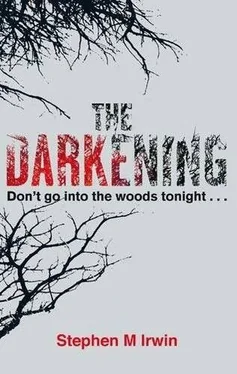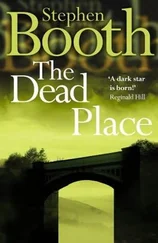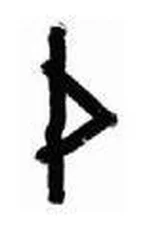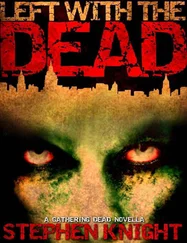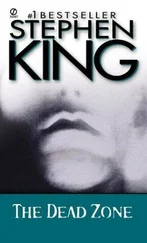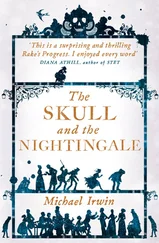Stephen Irwin - The Dead Path
Здесь есть возможность читать онлайн «Stephen Irwin - The Dead Path» весь текст электронной книги совершенно бесплатно (целиком полную версию без сокращений). В некоторых случаях можно слушать аудио, скачать через торрент в формате fb2 и присутствует краткое содержание. Жанр: Триллер, на английском языке. Описание произведения, (предисловие) а так же отзывы посетителей доступны на портале библиотеки ЛибКат.
- Название:The Dead Path
- Автор:
- Жанр:
- Год:неизвестен
- ISBN:нет данных
- Рейтинг книги:5 / 5. Голосов: 1
-
Избранное:Добавить в избранное
- Отзывы:
-
Ваша оценка:
- 100
- 1
- 2
- 3
- 4
- 5
The Dead Path: краткое содержание, описание и аннотация
Предлагаем к чтению аннотацию, описание, краткое содержание или предисловие (зависит от того, что написал сам автор книги «The Dead Path»). Если вы не нашли необходимую информацию о книге — напишите в комментариях, мы постараемся отыскать её.
The Dead Path — читать онлайн бесплатно полную книгу (весь текст) целиком
Ниже представлен текст книги, разбитый по страницам. Система сохранения места последней прочитанной страницы, позволяет с удобством читать онлайн бесплатно книгу «The Dead Path», без необходимости каждый раз заново искать на чём Вы остановились. Поставьте закладку, и сможете в любой момент перейти на страницу, на которой закончили чтение.
Интервал:
Закладка:
“I think so. A bit…” Suzette stopped folding clothes and thought for a moment. “I don’t think it’s good for him here. I’ll go home, and maybe talk him into moving down.” She fixed Katharine with a look. “Then I’ll get you down.”
“I’d have to sell both kidneys to afford to live in Sydney, and then where would I be?”
Suzette shrugged. “I could help.”
Katharine bristled, and fought back the stubborn urge to bite. “Thank you, love, but I own this place and it’s fine.”
Suzette smiled thinly, as if hearing a safe bet won.
“Listen,” began Katharine. “The other morning, over breakfast…”
“It was fine, Mum, I just don’t like porridge-”
“No, no. You asked me about… about the seamstress. Mrs. Quill.”
Katharine saw her daughter’s hands freeze for a moment in midair, before they continued their busy packing.
“Yep,” agreed Suzette.
“What made you think about her?” asked Katharine, still trying to keep her voice as airy as possible.
Suzette cocked her head. “I thought you couldn’t remember her?”
Katharine shrugged. “Oh, bits and bobs. Little old thing. Pleasant enough. Hardly saw her outside her shop. I don’t know where she lived, but it couldn’t have been far.”
Suzette was looking at her hard. “What makes you think that?”
Katharine thought. What did make her think that?
“I never saw her drive. And on the odd evening I saw her walking with her silly little dog-”
Katharine fell silent as Suzette’s face became a hard mask.
“Little dog?” she repeated.
“Yes, I think… a little-I don’t know-Maltese or something…”
Suzette was staring at her. “What color was it?”
Katharine frowned. “Honestly, it’s so long-”
“Mum?”
“White. But why?”
Suzette didn’t answer. She dropped the clothes she was folding and hurried out past Katharine.
A moment later, Katharine heard the fluff of an umbrella opening, the door slamming, and her daughter’s footsteps hurrying down the road.
Chapter 14
R ain on the windows turned the world into a smear, making car headlights larger but stealing their form, fusing blues and greens, killing reds and yellows. It was sometime after four in the afternoon, but low-throated winter rain clouds conspired to induce evening early.
Steam rose as Nicholas poured tea for his sister.
“Sugar?” he asked, and placed a bowl of cubes in front of his sister.
“Given up,” Suzette replied, taking the cup with a nod. She hesitated, then dropped three cubes into her tea. “Fuck it.”
Her gaze slipped down to Nicholas’s hand. He remembered her expression changing from mild cynicism to pale fear when she saw the puncture wounds in his hand. Right now, she looked ready to cry. And why not? He just piped her aboard the good ship Flip-out and set sail for Crazy Island.
They sipped their tea without speaking, listening to the ocean wash of distant tires on wet bitumen.
It had been about an hour since he’d heard the sharp rap on his front door. He’d hurried to hide away the papers he’d been laying out on the scarred and peeling coffee table, and opened the door on his drenched, dreadfully pale sister.
“I believe you,” she’d said.
He let her in, gave her a towel, put on the kettle. He asked her what made her change her mind.
“Quill had a little white dog,” explained Suzette. That was when Nicholas felt the mug slip from his dumb fingers, and hot tea and shards of ceramic scattered everywhere. She was helping him clean up when she noticed the pile of papers he’d hurriedly hidden under the coffee table.
“What are those?” she’d asked.
He’d lied so badly that she simply walked over, picked them up, and started flicking through them. Then it was her turn to be struck silent.
Now, on the coffee table, the photocopies were spread out again: printouts of old black-and-white photographs from the State Library. Bullock team and the abandoned water pipe. The funerals of the surveyors and auctioneers. The old real estate flyers. The unnerving image of the Myrtle Street shop in 1905, with the ghostly blur of Victoria Sedgely holding her white dog.
He’d talked her through them all one by one. The last printout was now facedown on Suzette’s lap; on its hidden side was the photograph of Eleanor Bretherton laying the foundation stone of the Anglican church. When Suzette first saw it, her lips thinned and her eyes grew as wet and unfocused as the rain-smeared windows.
“Quill,” she’d whispered, then turned the image over so she didn’t have to look at it.
He’d made another pot of tea while she collected herself. And then they sat, brother and sister, trying to believe the impossible.
“It’s…” Suzette shook her head.
“It takes awhile,” said Nicholas. He watched her carefully.
“Did you look up other records for Eleanor Bretherton?”
He nodded.
“And?”
“One paragraph in the Ipswich Times mentioning a donation for children with rickets from ‘philanthropist spinster E. Bretherton.’ That’s all.”
Suzette fell silent. She turned her head and looked out the window in the direction of the woods.
“I don’t know what to think.”
She put down her tea, delicately picked up the photograph of Eleanor Bretherton by its corner, and stared at the old woman’s hard face. She was in her sixties, her brow furrowed, staring at the lens, trying to penetrate it and memorize the photographer for retribution later. This was the face they’d passed almost daily on their way home from school, coolly looking out from her gloomy shop over her tall counter or her sewing machine. Suzette handed the offensive image back to Nicholas and he placed the sheet with the others.
“Could it be Quill’s grandmother?” he asked. “I mean, it could be.”
She only crooked her arm around a knee.
Nicholas slumped. “There’s more,” he said. “You okay to see it?”
She looked at him and shrugged.
He took a breath and reached into his satchel and produced another handful of pages held with a bulldog clip. “I had to go into the microfiche catalogue for some of these.”
The printouts were of enlarged newspaper articles.
“Dylan Thomas, 2007,” he said, and laid down the first. The headline read “Child Killer Charged.” It showed thin, harried cleaner Elliot Guyatt stepping awkwardly from a police paddywagon behind the Magistrates’ Court.
Nicholas laid down the next. “Nineteen eighty-two.” The bold text read: “Missing Boy Found Murdered.” The black-and-white photograph was a portrait of Tristram Boye smiling at the camera, forever ten years old. Suzette let out a sad sigh like a tiny “Oh.”
“Late fifties,” Nicholas said. “Norman Merriot.” The photograph captured two distraught parents being comforted by police detectives wearing fedoras, under the headline: “Local Nine-Year-Old Found Dead-Tragedy.”
He put down yet another. “Early forties. Esther Garvie.” Sandwiched between an item on jungle troops and ration changes: “Young Girl Missing-Public Asked for Information.” The halftone photograph showed the barefoot girl in the sundress Nicholas had seen on the path outside the woods.
“Nineteen thirty: Cecil MacKenniffe; 1912: Bernice Oliver; 1905: Alfred Clarke.” He laid down three clippings that were just paragraphs without pictures: “Western Suburbs Boy Missing”; “Oliver Girl Found Murdered, Killer Confesses”; “Police Lose Hope for Missing Child-Presumed Dead.”
He watched Suzette. Her face was almost white.
“Third-last one,” he said. “From the Moreton Bay Courier, 1888.” The small paragraph was headed “Murdered Boy Had Throat Cut.”
Читать дальшеИнтервал:
Закладка:
Похожие книги на «The Dead Path»
Представляем Вашему вниманию похожие книги на «The Dead Path» списком для выбора. Мы отобрали схожую по названию и смыслу литературу в надежде предоставить читателям больше вариантов отыскать новые, интересные, ещё непрочитанные произведения.
Обсуждение, отзывы о книге «The Dead Path» и просто собственные мнения читателей. Оставьте ваши комментарии, напишите, что Вы думаете о произведении, его смысле или главных героях. Укажите что конкретно понравилось, а что нет, и почему Вы так считаете.
